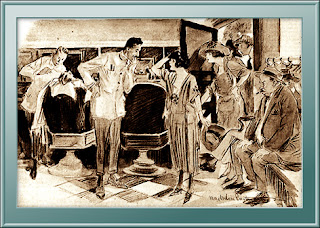
Foreshadowing is the groundwork of the short story, “The Lottery”. The story reveals everything you need to know while reading it besides the most important part, the fatality of the chosen one. In the beginning of the story Shirley Jackson uses foreshadowing when she describes the town in preparation for the lottery.
“Bobby Martin had already stuffed his pockets full of stones, and the other boys soon followed his example, selecting the smoothest and roundest stones; … and Dickie Delacroix… eventually made a great pile of stones in one corner of the square and guarded it against the raids of the other boys”.
Jackson does not inform as to why the boys are collecting and hoarding these stones, she merely mentions it. Another example of foreshadowing is depicted with this sentence; “no one liked to upset even as much tradition as was represented by the black box”. Implying that stoning the villagers through a lottery is tradition that the residents do not want to be changed.
Jackson uses foreshadowing to aid in illustrating a lesson, or message. Many factors used in the story represent evil, especially in ways the reader would not consider. She uses the color of the box; black, to show the wickedness in the lottery. Also, the names of the characters reveal evil. For example, Mr. Graves is the postmaster and the man that brings the black box to the village gatherers for the lottery. His name foreshadows the lottery winner’s future.
